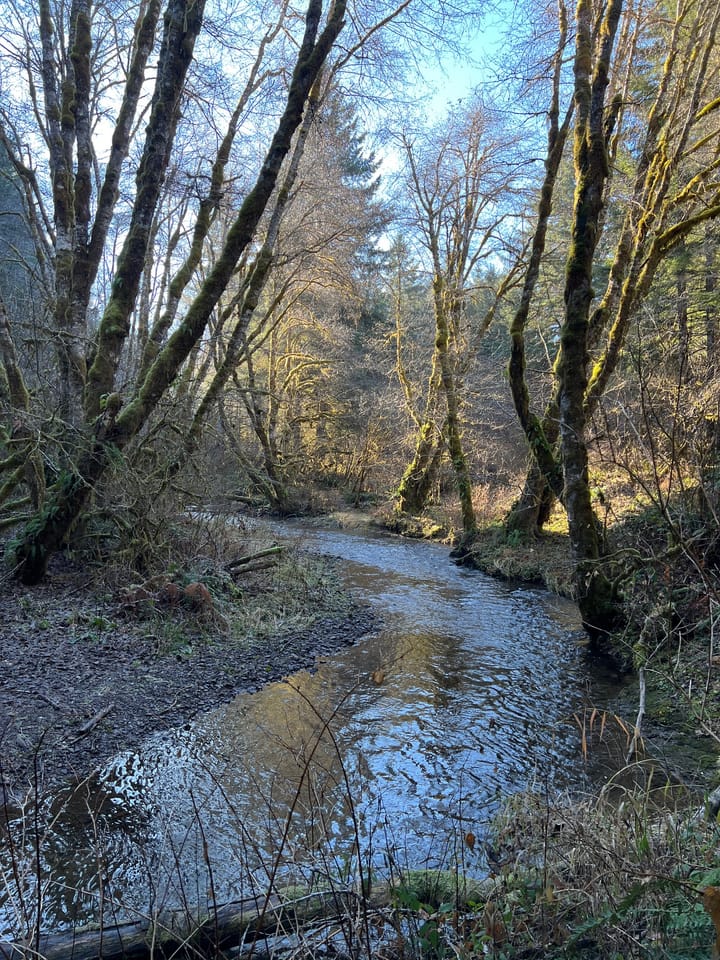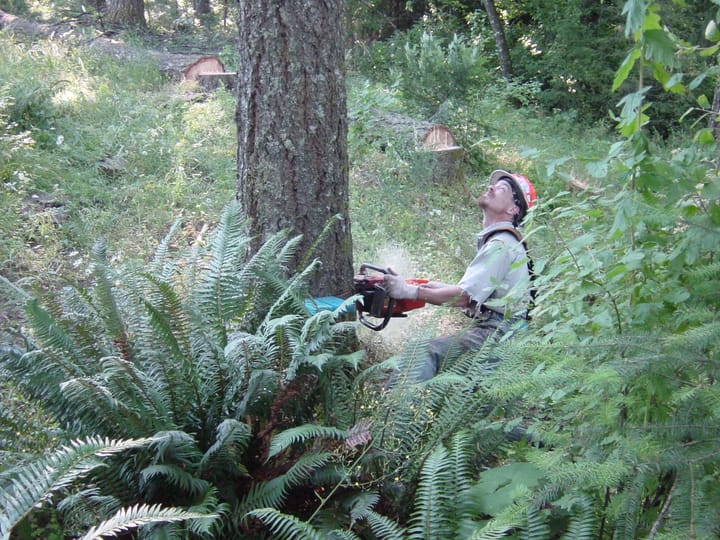Leopold's Gift, Challenge and Curse

How Aldo's teachings inspire and challenge us -
I look on Aldo Leopold as a hero. Because of this I am vulnerable to focusing on the positive legacy he left us without fully appreciating that his legacy may be as problematic as it is constructive. Though Leopold put pen to paper many years ago, his tone clearly signals that he wrote with a view to the future – to people he hoped we might choose to become. Accordingly, it seems that the best way to both understand his contributions and honor his memory is to consider his work through three lenses – the past, the present, and the future. One way to do this is to consider his contributions as not only as a gift, but also as a curse, and – looking to the future – as an unmet challenge. As a strong believer in the notion that “talk is cheap”, as both a forest steward and as a plain citizen I am captivated by the questions of how philosophies are given life when they make the transition from theoretical notions on paper into living realities shaping landscapes and people in tangible and practical ways. Though Leopold died with a strong desire to see his Sand County Almanac in print and widely read, I imagine that his desire was even stronger to see his philosophies made real through actions on the land – Living Leopold.
The Gift – Looking to the past, it is easy for me to recognize the gift of words put on paper that have shaped the thinking and feelings of others throughout the world – from the day they were first published and on into the indefinite future. As many of us have found, his writings are a gift that often takes on new depth and meaning with each rereading and in the light of ever changing circumstances. We each reach different conclusions on what Leopold’s greatest contributions were, but for me, three stand out:
1. The first was his ability to study and analyze the evolving relationships between people and land and to then distill his observations and thoughts into simple, clear, and eloquent language – using few words to convey much. (add quotes)
2. The second gift was his choice to be radical – if one defines radical as the choice to “go to the roots” of an issue. Though he studied and followed public policy, economics, and education as they pertained to the people-land relationship, he understood – and showed us – that all of these sit on and are shaped by the foundation of our values, beliefs, and ethics.
3. And finally, he recognized that changes in how those of us who grow things for a living treat the land we are responsible for are interdependently linked to consumers learning and choosing to apply their land ethic through being mindful to make purchases that clearly leave both land and the grower as well, or better, off – “The long and the short of the matter is that forest conservation depends in part on intelligent consumption, as well as intelligent production of lumber." By as early as 1928 he realized that growers could not become part of the solution of conservation unless consumers made the choice to stop being part of the problem.
At the same time that I appreciate the ways that Leopold’s writings and example have positively shaped my life, I am also often reminded that within his too short lifetime he was not successful in either personally applying his core philosophies or showing us examples of others who have. While he inspired us with words such as: “When the land does well for its owner, and the owner does well by his land; when both end up better by reason of their partnership, we have conservation. When one or the other grows poorer, we do not.”, he was not successful in managing his relationship with his land in ways that demonstrated how this might be done. Half of the bargain – setting the land surrounding the Shack on the road toward restoration, but the other half – providing a reasonable return to the owners – was made unimportant due to sustenance provided by a university salary.
The Curse – If you were to believe the conclusions of members of my immediate family, my life has been as much cursed by Leopold’s legacy as it has been blessed. I fear that they may be right. As owners and stewards of 800 acres of working forest inOregon’sCoastRange, we aim, strive, and struggle to have the forests and our lives become tangible examples of applying Leopold’s philosophies in general, and his definition of conservation in particular. Because the life of our forests is interwoven with the larger economic, cultural, and ecological web of our region and world – with its demand for cheap wood and free ecosystem services, regardless of the costs – we have yet to succeed. Messages from current markets tell us and fellow forest owners that we must choose between two options – growing ecologically functional forests or earning a fair and sustaining living from our work on the land. Because too many continue to, not surprisingly, choose the later, the common wealth of our region continues to decline.
But what if we only worked a little harder – by milling and drying our own wood and creating new markets linking us to nearby conservation-minded growers, by educating just one additional group of school students, by making time to participate in one more public meeting, by working with others to see if one more run at creating viable markets for carbon credits might be successful, by…..? I find that the lure and responsibility of striving to make real Leopold’s – and now my – vision is causing me to compromise other essential elements of my life; elements that I can’t afford to compromise; these include relationships with family and friends, community responsibilities, and personal health. Like a pre civil war southern farm owner who believed that slave ownership was morally wrong trying to grow and sell competitive products without relying on slave labor, we are torn between the choice to do what we feel is ethically right and doing what is needed for our business to be minimally economically viable. In the same way that the southern farmer’s dilemma was only resolved by societal shifts that aligned the community’s values with his, the resolution of our dilemma hinges on a societal shift to an ethical belief that profit that comes at the cost of land degradation is no longer acceptable. To preserver in working with others to make the changes on which the shift from Leopold as theoretical vision to Leopold as models of tangible, applied philosophy requires faith in the ability of fellow citizens to change their minds and hearts. My darker moments are brightened by reflecting on the many, and often unexpected, ways in which ethical foundations have shifted, for the better, in my lifetime; the profitability of cotton growing in the south no longer depends on unethical slave labor.
The Challenge – If the reality of Leopold in the past is the recognition of the gifts he left us, and the reality of Leopold in the present is that the gifts bring with them the curse of having yet to create the conditions that make his vision a reality, perhaps he’d want us to be most focused on looking into the future. Looking forward in time, it is clear that Leopold ultimately left us with a challenge – the challenge of changing our habits of land stewardship and consumption so that needs are met in ways that leave both land and people well treated.
Depending on our role in the process, this challenge takes different forms. For the land steward/grower the challenge is to treat lands in ways that maintain and enhance its ecological health – while reaching out to create new markets that make this a viable and rational option. For the consumer, the challenge takes the form of marrying the land ethic with an equally determined “consumption ethic” – the commitment to knowing the true stories of what we buy, and to buying only when we knows that our choice contributes to the place the product grew being left as well, or better, off than if you hadn’t made the purchase. Consuming decisions are made all along the supply chain – from the end user of the chair, to the furniture maker, to the wood distributor, to the sawmill owner.
The words “I have a dream” changed the world. Though expressed more subtly, Leopold’s dream was – and is – every bit as compelling, relevant, and urgent. A dream of – an ecologically literate society that interacts with land as a community to which we have ethical responsibilities and not as a commodity – a place where partnership between grower and consumer make true conservation the logical choice for landowners – a society that truly understands, values, and invests in the health of both its land and its people.
As we continue to reflect on the legacy that Aldo Leopold left to us, I know that we will appreciate his gifts of clear, eloquent insight and vision, and wrestle with the curse of his yet to be fulfilled vision, but I can imagine him driving us to focus our attention and energy on the future and the central challenges of creating integrity between our daily actions and our beliefs and values.


